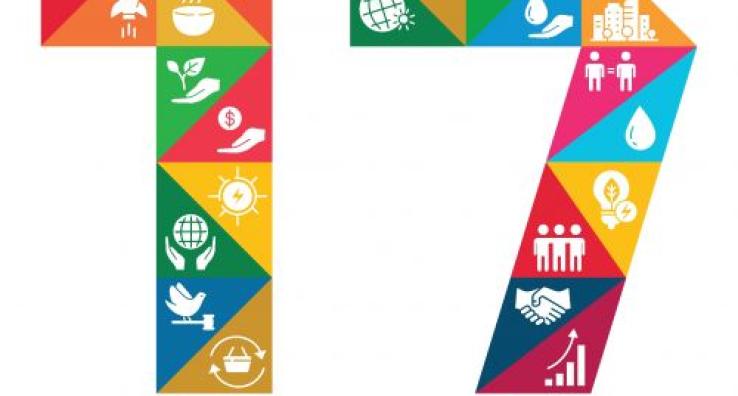As the curtain lifted on 2020, the UN raised a welcome sense of urgency for the 2030 Sustainable Development Goals (SDGs) by announcing a “Decade of Action.” The campaign makes it clear that we have a long way to go to make enough progress to keep the world inhabitable—not to mention to bring about equitable prosperity—by 2030 and beyond. All those efforts are grounded in the sustainable development of the global economy.
At the recent World Economic Forum in Davos, world leaders focused closely on the SDGs and the need—if we’re going to reach these goals—to remake much of the global financial ecosystem. I couldn’t agree more.
If we want to make broad and lasting gains—and, in the process, strengthen national financial systems—we need to turn to an often-overlooked pillar of economic progress: high-quality accountancy standards implemented by a strong national accountancy profession.
To put it simply, we can’t realize the massive potential benefits of meeting the SDGs if we don’t invest in standards and the profession. The symptoms of a weak financial system—fraud and corruption, economic instability, barriers to philanthropic financing and necessary foreign direct investment—are all major obstacles to financing projects in support of the SDGs. Without a strong national financial system, many SDGs—quality education, decent work and economic growth, climate action, and many more—will be out of reach.
Accountants help organizations set and achieve objectives, and measure and communicate success to key stakeholders. In these ways, the profession creates high-functioning national financial systems and drives long-term value creation. All this is critical to the SDGs and our shared future on this planet.
Identifying Opportunities for Better Decisions
The levers of sustainable development opportunities are different in each country, but they always correlate to the quality of the national financial systems and—although they have much to gain from meeting the SDGs—many low-income countries are unlikely to do so without an overhaul of their financial systems. These countries often don’t have a sufficient number of accountants and an effective professional accountancy organization to support them. And the situation is particularly acute in the public sector, even though this sector plays a large role in their economies.
To enable better decisions about resources and create long-term value, the question becomes: How do we harness opportunities to advance sustainable development milestones?
Part of the solution is to reevaluate how standard-setting and capacity-building organizations systematically support low-income countries to ensure their financial systems are fit for purpose.
Avoiding Parallel Financial Systems in Low-Income Countries
Imagine a donor wants to fund the construction of a school in a low-income country, in association with Goal No. 4, Quality Education. The community is in desperate need of one and they have donor support for construction. So, what’s standing in the way? Due to a weak national financial system, there is no way to accountably fund the project. A donor in this situation might be compelled to rely on its own people to establish a parallel financial system. But in this case the ability to support or—better yet—replicate a positive outcome leaves with the donor. Without systemic change to the national financial system, the intended SDG progress won’t last.
The solution lies in building local capacity and strengthening the national financial system. Donors and investors need high-quality information that they can trust to support SDG progress. Local accountants—analyzing opportunity and risk as well as short- and long-term trade-offs—help provide it. Effective professional accountancy organizations are essential to developing quality accountants and adopting and implementing international standards.
Image

Measuring and Reporting Impact Reliably
What gets measured gets managed. Quality reporting in both the public and private sectors is essential to measuring and reporting the impact of SDG efforts reliably. For this reason, IFAC joined other leading accountancy bodies to endorse the newly released Sustainable Development Goals Disclosure Recommendations for enhanced reporting. The recommendations are a collective acknowledgement of the SDGs’ contribution to value creation and public trust, and also a safeguard against vulnerabilities that come with inconsistent reporting.
IFAC also recently committed to working with the profession to build the knowledge and capacity of accountants to advance the SDGs by embracing climate action and being part of the solution.
Nevertheless, it’s not enough to report information for the benefit of donors and investors. The relationship between citizens and commercial and government bodies comprises a delicate balance of trust, which reliable reporting strengthens. Without proper accounting practices, especially in the public sector, corruption can thrive. Citizens might come to mistrust their government. And progress might be very slow—if it materializes.
It’s important to remember a simple truth: With sound information, you can make sound decisions. Accountancy empowers the brain trust that low-income countries need. The adoption and implementation of high-quality accountancy standards is the right starting point to guide the private and public sectors on the road to realizing the SDGs by 2030 and beyond.
